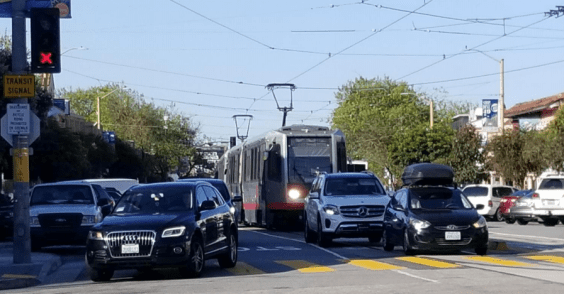Throughout the pandemic, California’s shared bike and scooter programs have served as a lifeline for residents to safely travel to work, school, and appointments. It’s disappointing that California state lawmakers have recently passed a draconian bill with the potential to destroy these necessary programs.
The bill, A.B. 371, would make the operators of shared micromobility programs – meaning programs for small wheeled vehicles like bikes and scooters – solely responsible for the negligent or reckless behavior of riders, setting a legal precedent that exists in no other industry.
Asking operators to shoulder the liability risks of their riders’ negligence sets a staggering legal precedent. Automakers, car rental agencies - even gun manufacturers - are not required to cover the negligence of their customers. (When you rent a car, for example, you cover the insurance costs.) Why would the state choose to set such an extreme precedent on zero-emission transportation options, when it doesn't do the same for an industry that has a proven track record of devastating public health hazards?
For now, the bill exempts shared bikes and ebikes, but would still mandate unprecedented third-party insurance for shared scooters and other types of micromobility. Make no mistake: this would still represent a grave threat to biking in California. A simple amendment at some future point could easily extend the devastating insurance requirement to shared bikes, threatening large programs like the Bay Area’s Bay Wheels system and small nonprofit bike-share programs alike. It’s clear that the author and co-authors had bikes in their crosshairs with earlier versions of the bill, so we know this is a possibility.
The precedent set by these extreme insurance requirements would also open the door to insurance requirements for private bikes and scooters. Why should insurance be required for a shared bike or scooter, when it is not required for one that is privately owned - which in theory presents the same safety risk on the street? Have no doubt, this is simply the first step towards extending insurance requirements to all micromobility options. Further, anti-bike legislators from other states will surely seize on A.B. 371, should it become law, to push for the same irrational insurance requirements in their states.
Here’s why this bill has the potential to end California’s shared micromobility programs: the costs to operators of providing it are still largely unknown, presenting an existential risk to all micromobility, but especially smaller nonprofit programs. These extreme insurance requirements would certainly add costs that would make it even harder for micromobility operators to serve cities equitably and affordably, especially in lower-income neighborhoods. It is not an exaggeration to say that the costs of this insurance requirement will put many micromobility providers out of business, reducing connectivity for responsible users with urgent transit needs. That’s why the cities of Santa Monica, Oakland, San Jose, and others are opposed to this bill.
California needs zero-emission shared bikes and scooters to meet Governor Newsom’s aggressive 2030 greenhouse gas emissions reduction targets. At a time when wildfires, sea level rise, and warming temperatures are a constant threat to our state, the Governor ought to support programs that replace car trips, rather than saddle operators with an array of costs that could put them out of business.
Ironically, the bill would do nothing to increase the safety of riders or pedestrians. Its insurance requirements only address post-crash costs, and California already has some of the highest insurance limits in the country for shared bike and scooter operators. Operators’ existing insurance covers their liability for third-party bodily injury and property damage.
Californians have relied on shared micromobility during the pandemic and it will remain an important tool for the Governor's push to lower California emissions and reliance on fossil-fuel vehicles. That’s why it only makes sense for him to veto A.B. 371.
Joy Massey is the Interim Executive Co-Director of TransForm, and its Mobility Hubs Program Manager. Kevin Claxton is the Interim Executive Director of the California Bicycle Coalition (CalBike).





